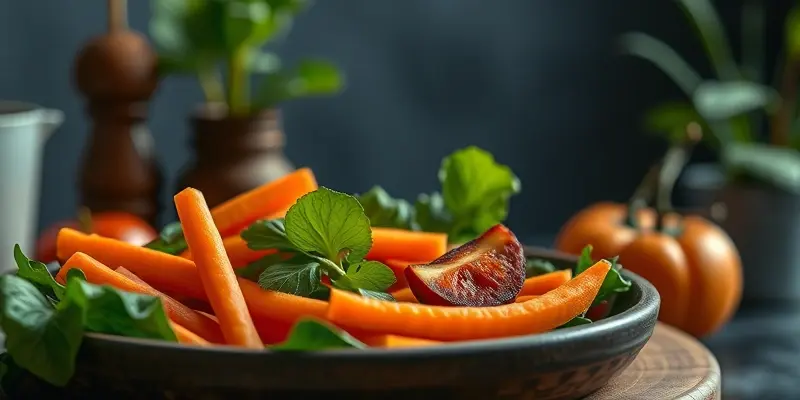Introduction
Injuries can sideline even the most dedicated athletes. Whether you’re training for your first 5K or pushing for a new personal record, recovery is key. What’s gaining buzz in fitness circles? The role of nutrition—particularly plant-based diets—in injury prevention and accelerated healing. If you’re curious about how a plant-powered approach can keep you strong, healthy, and in the game, you’re in the right place.
Common Sports Injuries and Prevention
No matter your sport or skill level, the risk of injury is real. The most frequent culprits include:
- Sprains (overstretched ligaments)
- Strains (muscle or tendon tears)
- Tendonitis (inflamed tendons)
- Stress fractures (tiny bone breaks from overuse)
But here’s the good news: what you eat can make a big difference. Why? Your body needs enough energy, protein, vitamins, and minerals to keep tissues strong and healthy.
Nutrition Tip: Getting enough calories and nutrients from whole plant foods helps build resilient muscles and bones, potentially reducing injury risk. For example, calcium-rich leafy greens and vitamin D (via fortified foods or sunlight) support bone health, while plant-based omega-3s from chia and walnuts fight inflammation.
Plant-Based Nutrition for Injury Recovery
The Antioxidant Advantage
After an injury, your body jumps into repair mode. This process creates free radicals that can cause additional cell damage. A plant-based diet—loaded with antioxidants like vitamins C and E (found in citrus, berries, and nuts)—helps neutralize these troublemakers and reduce inflammation.
Protein: The Building Block
Muscle repair ramps up your protein needs. Contrary to old myths, plants provide plenty of protein for recovery:
- Lentils, beans, and tofu are excellent sources.
- Quinoa, nuts, and seeds help deliver a broad amino acid profile.
- For best results, spread protein intake across meals to support muscle rebuilding.
Micronutrients Matter
Tissue healing draws heavily on micronutrients:
- Iron (lentils, spinach) supports oxygen delivery to healing tissues.
- Zinc (pumpkin seeds, chickpeas) aids in cellular repair.
- Vitamin C (peppers, kiwi, oranges) is crucial for collagen formation, helping ligaments and tendons rebuild.
Practical Plant-Based Recovery Strategies
Smart Meal Planning
Building a recovery-friendly meal plan can be simple and satisfying:
- Breakfast: Overnight oats with chia seeds, walnuts, berries, and fortified plant milk for protein, omega-3s, and calcium.
- Post-workout: Smoothie with spinach, banana, vegan protein powder, and berries to jumpstart muscle repair.
- Dinner: Stir-fried tofu with quinoa, broccoli, bell peppers, and pumpkin seeds for a micronutrient boost.
Snack ideas: Hummus with carrot sticks, trail mix with nuts and seeds, or whole-grain toast with nut butter.
Supplements—When Needed
If you worry about nutrients like B12, iron, or vitamin D, a quality vegan supplement or multivitamin can fill the gaps—especially during periods of intense recovery or limited sunlight exposure.
Tools, Gadgets & the Mental Game
Recovery Tools
Sometimes, nutrition isn’t enough on its own. Support your recovery with:
- Foam rollers and massage guns to increase blood flow and reduce soreness. For more detailed techniques, check out our posts on foam roller benefits and massage gun therapy.
- Compression gear to support muscle repair.
Tracking apps can help monitor your progress, log meals, and keep you accountable during rehab.
Mindset and Support
Don’t underestimate the mental aspect of healing. Staying motivated during recovery can be tough. Try:
- Mindfulness meditation or sports psychology apps to keep spirits high.
- Joining plant-based fitness communities for shared tips and encouragement.
Conclusion
Embracing a plant-based diet doesn’t just support your health; it’s a science-backed strategy to help prevent injuries and speed recovery when setbacks occur. By focusing on whole foods, paying attention to key nutrients, and using recovery tools wisely, you’ll set yourself up for long-term performance—whatever your fitness goals.
Ready to power up your recovery with nutrition? Start gradually, listen to your body, and explore more expert resources at GymPulse Club. Your journey to resilience—and faster bounce-backs—starts with what’s on your plate!

